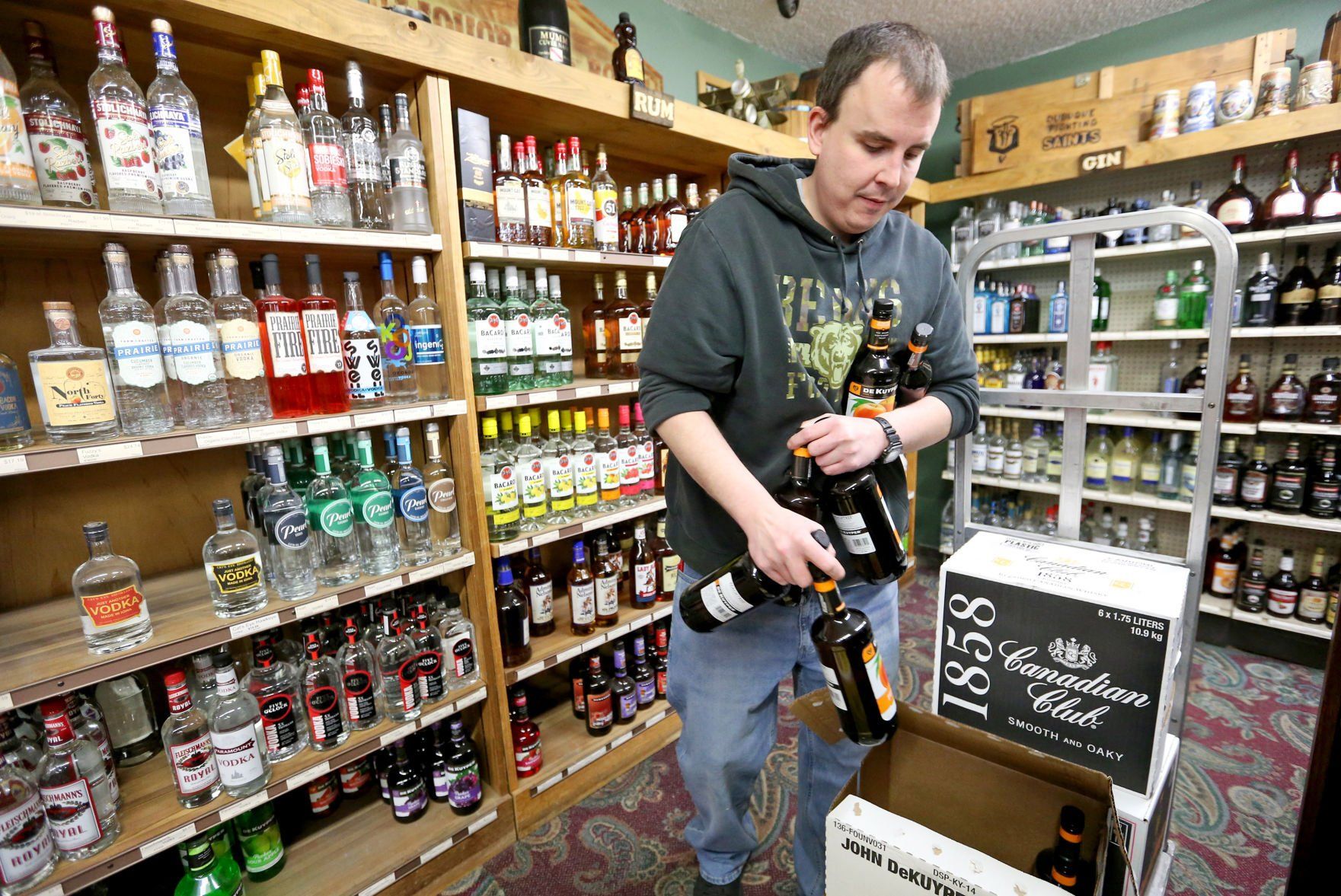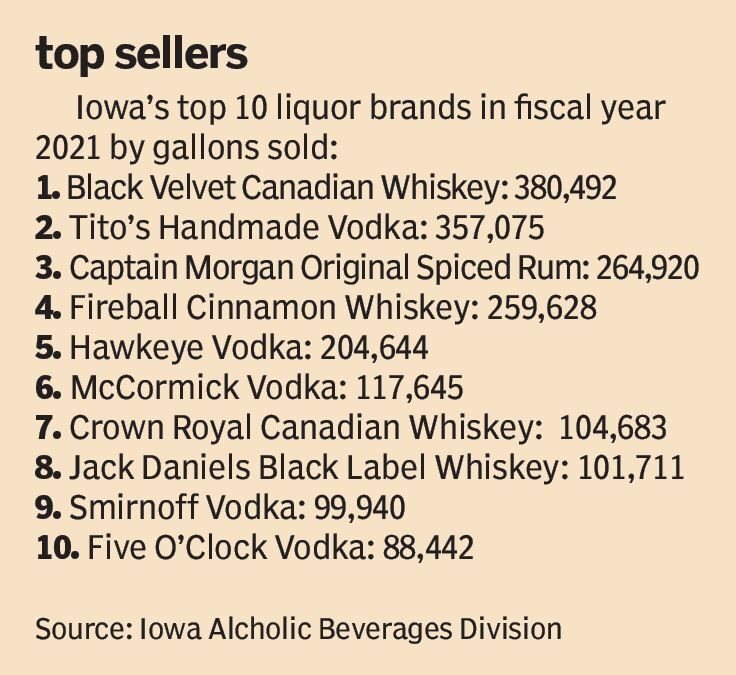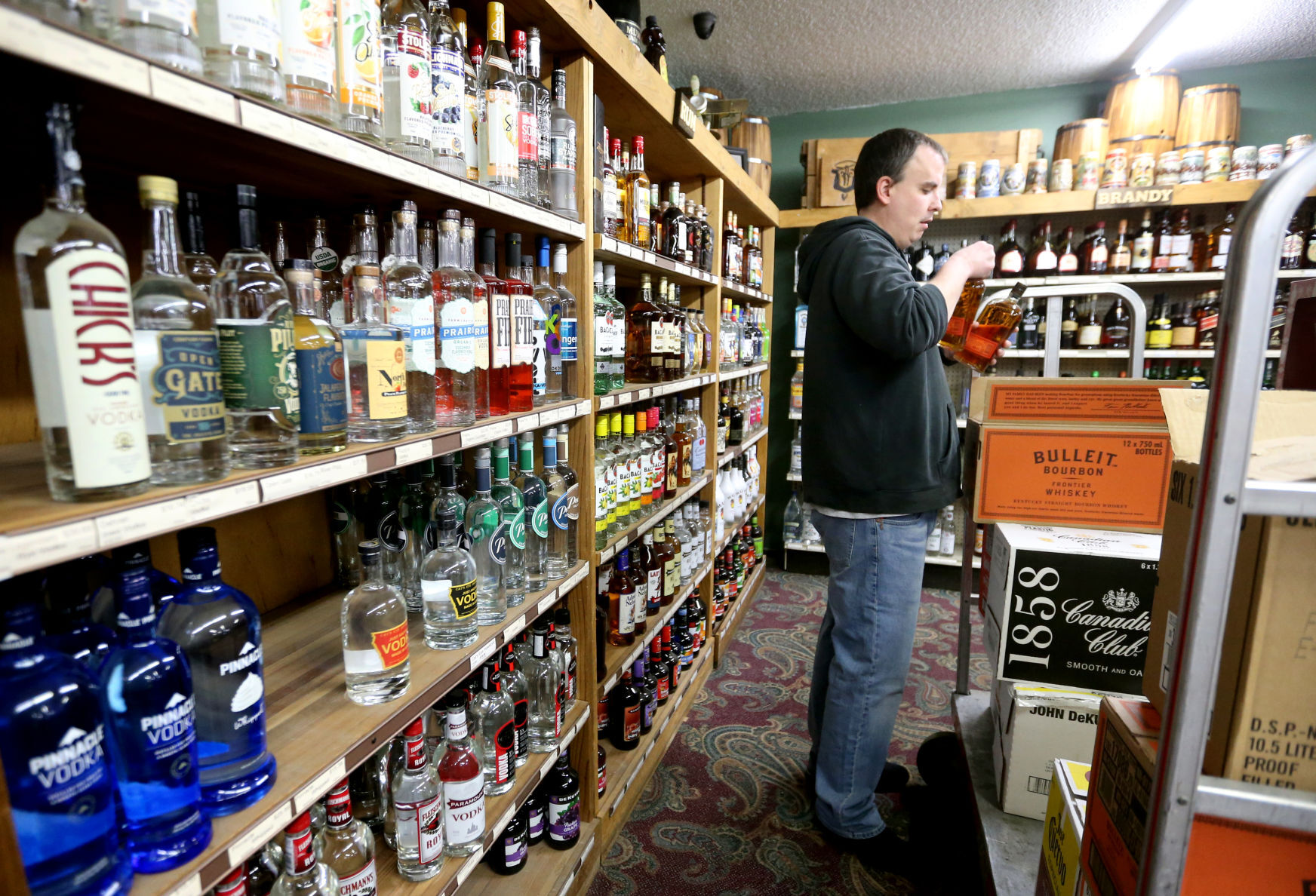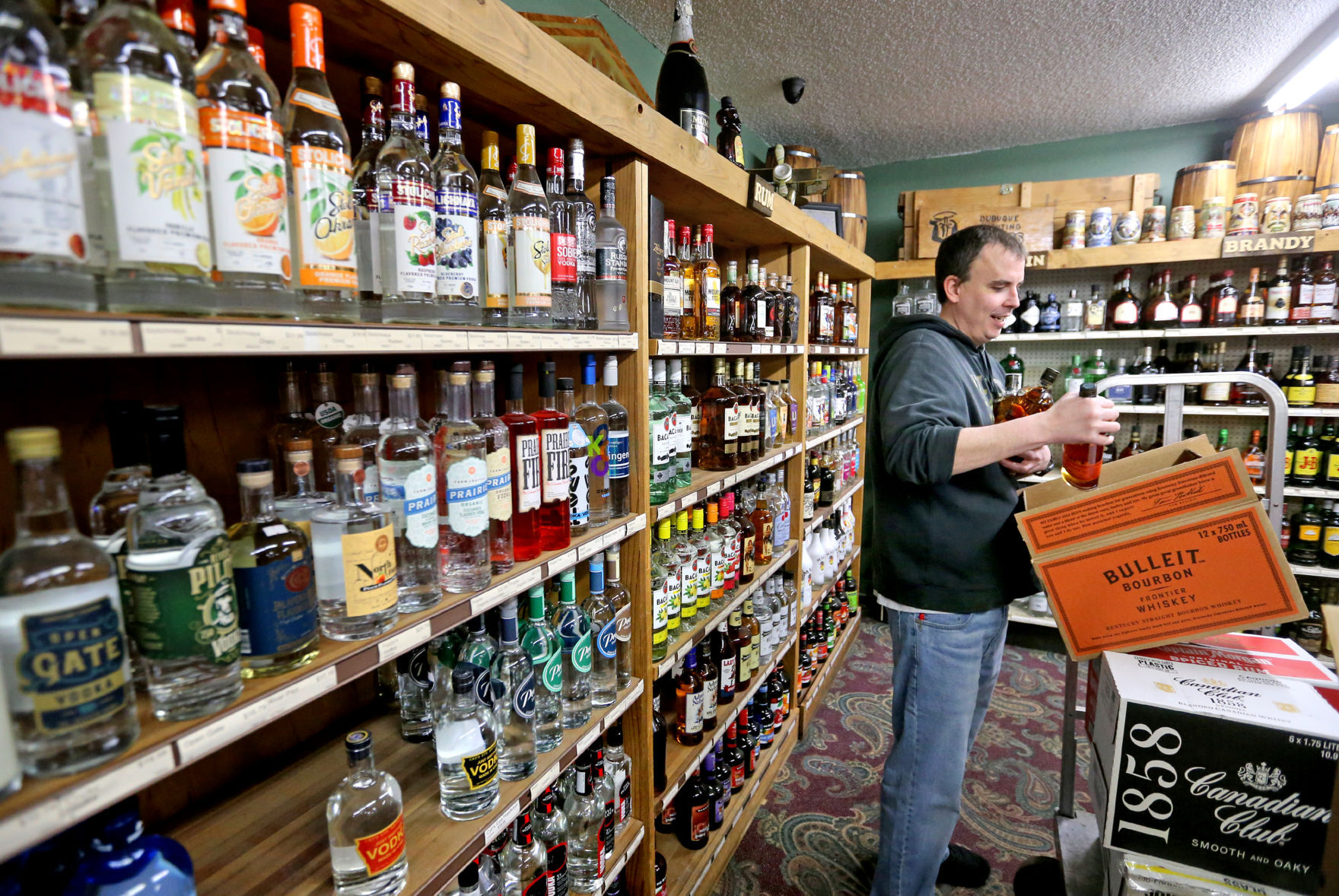A new report shows that, amid the COVID-19 pandemic, Iowa had record liquor sales in fiscal year 2021.
The Iowa Alcoholic Beverages Division announced liquor sales topped $415 million for the fiscal year that ended on June 30 — a 13.2% increase over the previous year. That previous year had been a record-breaker itself, with an 8.2% increase in sales.
The most recent total continues the trend of rising liquor sales in Iowa, though the fiscal year 2021 numbers mark an unprecedented jump.
A total of 6.5 million gallons of liquor were sold last fiscal year. That includes 199,889 gallons sold in Dubuque County, the ninth-highest total of the state’s counties and 13% more than the prior fiscal year.
“We have still been very busy,” said Scott Huff, manager of Sid’s Beverage Store in Dubuque. “People were buying hard liquor like it was going out of style.”
Neighboring Clayton, Delaware, Jackson and Jones counties also saw year-over-year increases in gallons sold ranging from 5% in Delaware to 12% in Clayton.
FAVORITES
Iowa’s favorite liquors remained consistent year over year. Black Velvet Canadian Whisky was the most-popular liquor by gallons sold in Iowa, just as it has been every year since the state started tracking that data in fiscal year 2012.
But Tito’s Handmade Vodka — second again this year — significantly closed the gap, spurred by a 23% year-over-year increase and an about 20,000-gallon decrease in Black Velvet sales.
The same liquors made up the remainder of the top 10 as the prior year, though many changed spots.
Statewide, 2.1 million gallons of whiskey was sold in the last fiscal year, just more than the 2 million gallons of vodka. Rum was third with about 750,000 gallons.
The Iowa Alcoholic Beverages Division is the wholesaler of liquor for the state and supplies spirits to class E liquor license-holders. Those establishments sell the liquor products to the public. There are 59 businesses in Dubuque County with class E licenses.
Huff said his store has continued to see high sales in liquor, with Tito’s gaining particular traction among customers.
“Tito’s feels like the new top dog,” he said.
CAUSES FOR UPTICK?
Huff largely attributed the success of liquor sales to the COVID-19 pandemic shutting down bars for months, even though those closures occurred before the recently completed record-breaking fiscal year. He said the period during which bars were closed created a renewed interest in purchasing liquor from local stores and that has persisted.
“We are still feeling a boost from the pandemic,” Huff said. “It’s reinvigorated people’s love for people making stuff at home.”
The state report also argued that the pandemic played a role in increasing liquor sales.
“A portion of this increase may be contributed to buying habits formed due to the pandemic and consumers purchasing more spirits for home consumption,” stated Alcoholic Beverages Division Chief Operations Officer Herbert Sutton Jr. in the report.
However, many bars and restaurants also have seen strong liquor sales.
Sara Oglesby, owner of 1st & Main in Dubuque, said her business has recovered nicely since re-opening after pandemic restrictions were lifted.
“We definitely have seen an increase,” she said. “It seems like people are more excited to get out.”
Oglesby said her liquor sales saw a particular increase in the fall, though this largely aligns with sales trends of previous years.
“We always see a boost when the college kids return,” she said.
The sharp increase in sales comes even as the liquor industry is faced with a glass bottle shortage created by worldwide supply-chain disruptions. Huff said he has had several occasions when he was sold out of top liquor brands and unable to quickly restock.
“It has created issues with availability,” Huff said. “There’s a shortage of glass out there, and we are being impacted by it.”
BEER SALES
The state also saw significant increases in beer and wine tax revenues during the recent fiscal year, though it does not directly track how many gallons are sold. During fiscal year 2020, a moratorium was put on collecting beer and wine taxes, deferring their collection to fiscal year 2021.
As a result, the state saw an even more dramatic increase in beer and wine tax revenue, processing $29.7 million in beer and wine taxes in fiscal year 2021, compared to $15.4 million in fiscal year 2020.
State officials did not respond to a request for data on the gallons of beer sold in the recently completed fiscal year and prior year comparisons.
NEGATIVE IMPACTS
While the increase in liquor sales is welcomed by local businesses, substance abuse prevention organizations are taking the news with caution.
Dawn Hall, executive director of Substance Abuse Services Center in Dubuque, said her agency did not see an increase in alcohol-related services in fiscal year 2021, despite the increase in sales.
“We’ve seen a steady number of people we are serving, but I can’t say we have seen the same increase that the state has seen in liquor sales,” she said.
However, she also argued that the living conditions created by the pandemic did create the potential for an increase in substance abuse by local residents.
“The pandemic has been difficult on a lot of people,” she said. “A lot of people felt isolated because they were recommended to stay home, which can help to develop substance abuse conditions.”





